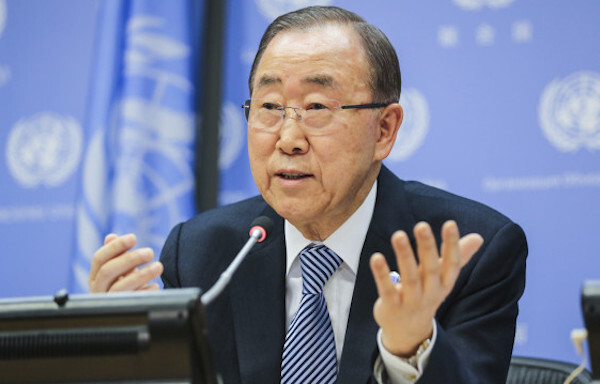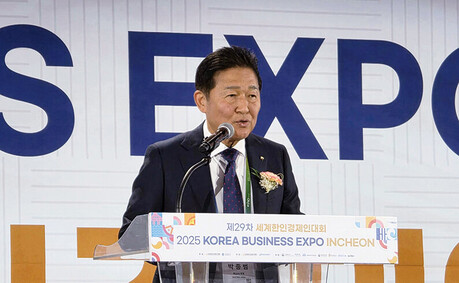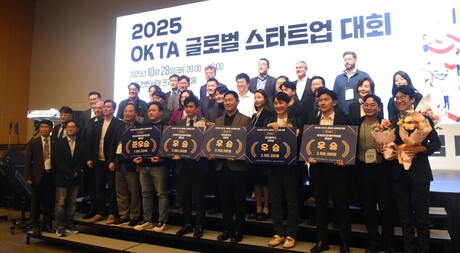
SEOUL – On April 24th, former United Nations Secretary-General Ban Ki-moon delivered a video address at the ‘International Forum on Solutions for African Forced Displacement (Refugees)’ held at the Yonhap News Building in Jongno-gu, Seoul. In his address, he underscored the profound interconnectedness between the challenges faced by Africa and those encountered by South Korea, stating, "Africa's problems, including conflicts, forced displacement, refugees, climate change, and disasters, are inherently South Korea's problems, and vice versa."
Ban Ki-moon emphasized the era of global interdependence, asserting, "We have entered an age where our goals and values cannot be safeguarded unless we achieve peace and prosperity together." He further elaborated on the necessity of global collaboration, stating, "In today's interconnected world, built on the universal values of cooperation, trust, and solidarity, no region can remain immune to the issues of another."
Drawing parallels between the historical experiences of South Korea and African nations, Ban Ki-moon highlighted the imperative of solidarity. "While South Korea has ascended to become one of the world's top ten economies, its historical trajectory and experiences bear significant resemblances to those of Africa," he remarked. "The era of colonialism, poverty, and conflict that Africa endured mirrors our own experiences."
He referenced South Korea's remarkable economic transformation, known as the ‘Miracle on the Han River,’ which followed the devastation of the 1950-1953 Korean War. "This transformation would have been inconceivable without the understanding and cooperation of our allies and the broader international community, including African nations," he acknowledged.
Ban Ki-moon noted the growing perception of South Korea among African nations as a partner for shared values and future vision. "African countries now view South Korea, with its historical parallels, as a nation with which they can share a vision for the future," he stated. "We, in turn, deeply recognize the immense aspirations for hope and progress emanating from Africa."
During his tenure as UN Secretary-General from 2007 to 2016, Ban Ki-moon demonstrated a profound commitment to Africa. He visited numerous African refugee camps, including those in the Darfur region of Sudan, and frequently toured UN peacekeeping mission sites.
"Throughout my travels across Africa as UN Secretary-General, I witnessed firsthand the significance of international solidarity and partnership, encapsulated by the ‘Ubuntu’ spirit, which signifies ‘I am because we are,’" he recounted.
Ban Ki-moon also emphasized the pivotal role of media in fostering stronger ties between South Korea and Africa. "I urge Yonhap News Agency and other media outlets to take the lead in discovering and promoting the true allure and values of Africa," he stated. "I am confident that the dynamism and potential of Africa, the world's youngest continent, will harmonize with South Korea's drive, leading to the flourishing of friendship between our nations."
Contextual Enrichment:
The ‘International Forum on Solutions for African Forced Displacement (Refugees)’ is a critical platform for addressing the multifaceted challenges of forced migration in Africa. The African continent faces numerous crises, including armed conflicts, political instability, climate change-induced disasters, and economic hardships, which contribute to the displacement of millions.
According to the United Nations High Commissioner for Refugees (UNHCR), Africa hosts more than a third of the world's refugees and internally displaced persons. The challenges are compounded by limited resources, inadequate infrastructure, and the protracted nature of many displacement situations.
South Korea's engagement with Africa is increasingly significant, driven by mutual interests in economic cooperation, development assistance, and cultural exchange. The country's own history of overcoming adversity resonates with many African nations, fostering a sense of shared experience and potential for collaboration.
The concept of ‘Ubuntu,’ which Ban Ki-moon referenced, is central to African philosophy and emphasizes the interconnectedness and interdependence of individuals within a community. It underscores the importance of empathy, compassion, and collective responsibility.
The role of media in shaping public perception and fostering international understanding is crucial. Balanced and accurate reporting can help raise awareness about the challenges faced by African refugees and promote support for humanitarian efforts.
Ban Ki-moon’s continuous advocacy for Africa highlights the importance of sustained international attention and cooperation in addressing the continent’s complex challenges. His emphasis on the interconnectedness of global issues underscores the necessity for collective action to achieve sustainable peace and development.
The event hosted by Yonhap News Agency and UNHCR, signals the importance of spreading awareness to the south korean public, and building a stronger bridge between Korea and the african continent.
[Copyright (c) Global Economic Times. All Rights Reserved.]



























